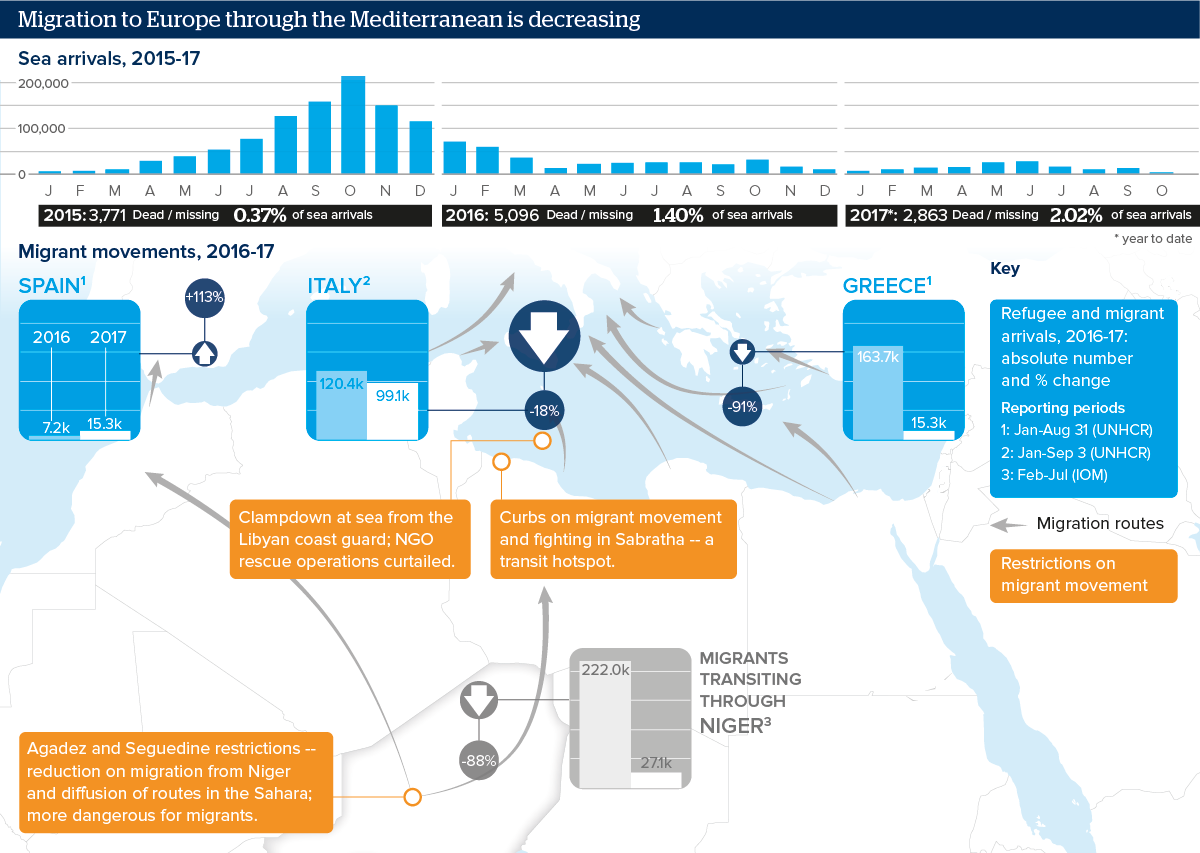EU measures are curbing Mediterranean migration
Notwithstanding the human cost, Italian and EU policies to stem migration are working
Source: UN Refugee Agency (UNHCR), International Organization for Migration (IOM), Regional Mixed Migration Secretariat (RMMS) West Africa, Frontex, News reports
Outlook
Italy has been spearheading EU efforts to curb migration through the Mediterranean. Rome has trained the Libyan coast guard, helped Libya’s Tripoli government conclude a deal with a militia group to clamp down migration from a transit hub in Sabratha, curbed NGOs from carrying out rescue operations and set up deals with transit countries Niger and Chad to increase movement restrictions.
The measures are working, but not without controversy. Libya’s human rights record, especially on migrants, is appalling. The Council of Europe yesterday warned Italy it could be breaching the European Convention on Human Rights. The security measures are also forcing smugglers to take more clandestine -- and dangerous -- routes; the risk of death for migrants is rising, though fewer deaths are discovered.
Impacts
- The pressure on Libya is pushing migrants elsewhere: Tunisia and Morocco are reporting increases in migrant set-offs.
- Although relatively small, the number of Libyan migrants has doubled to 800 this year -- which could become an issue next year.
- This is unlikely to offset a decrease in Nigerian arrivals, the most migrants through the Mediterranean.
See also
- Shifting Maghreb migration may prompt EU cooperation - Nov 14, 2017
- West African border control will be tenuous - Oct 25, 2017
- Common EU migration policy will be hard to achieve - Sep 18, 2017
- More graphic analysis
